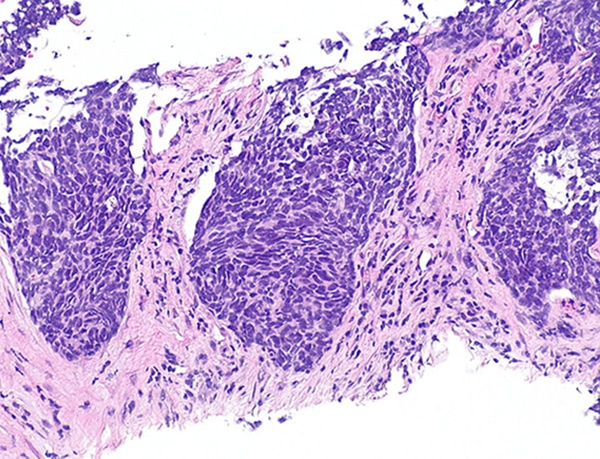Targeting KRAS-mutated Non-small Cell Lung Cancer
The U.S. FDA has granted accelerated approval to the first KRAS inhibitor, along with two companion diagnostics, for certain patients with KRAS-mutated lung cancer.
The U.S. Food and Drug Administration (FDA) granted accelerated approval to the molecularly targeted therapeutic sotorasib (Lumakras) for certain patients with non-small cell lung cancer.
The approval was for adult patients with locally advanced or metastatic tumors who received at least one prior systemic therapy and whose tumors have a specific mutation in the KRAS gene (KRAS G12C). Sotorasib is the first targeted therapy approved to treat patients whose tumors contain a KRAS mutation.

KRAS mutations account for about 25 percent of the mutations in non-small cell lung cancers and were previously considered “undruggable” because the structure of KRAS makes it difficult to target using small molecules. The FDA also approved two companion diagnostics to help identify patients with the KRAS G12C mutation who may be eligible for sotorasib treatment. One, the QIAGEN therascreen, identifies the KRAS G12C mutation in tumor tissue, and the other, Guardant360 CDx, identifies the mutation in plasma.
The approval was based on a multi-center, single-arm, open-label clinical trial that enrolled 124 patients with advanced, previously treated, KRAS-mutated non-small cell lung cancer. Patients took sotorasib once daily, and 36 percent experienced a response, with a median response duration of 10 months.
Non-small cell lung cancer is the most common form of lung cancer. Nearly 236,000 new cases of lung and bronchus cancer were estimated to be diagnosed in the United States in 2021, according to federal statistics.
The FDA rendered the accelerated approval on May 28, 2021. Accelerated approval means continued approval may be contingent upon a confirmatory trial.
